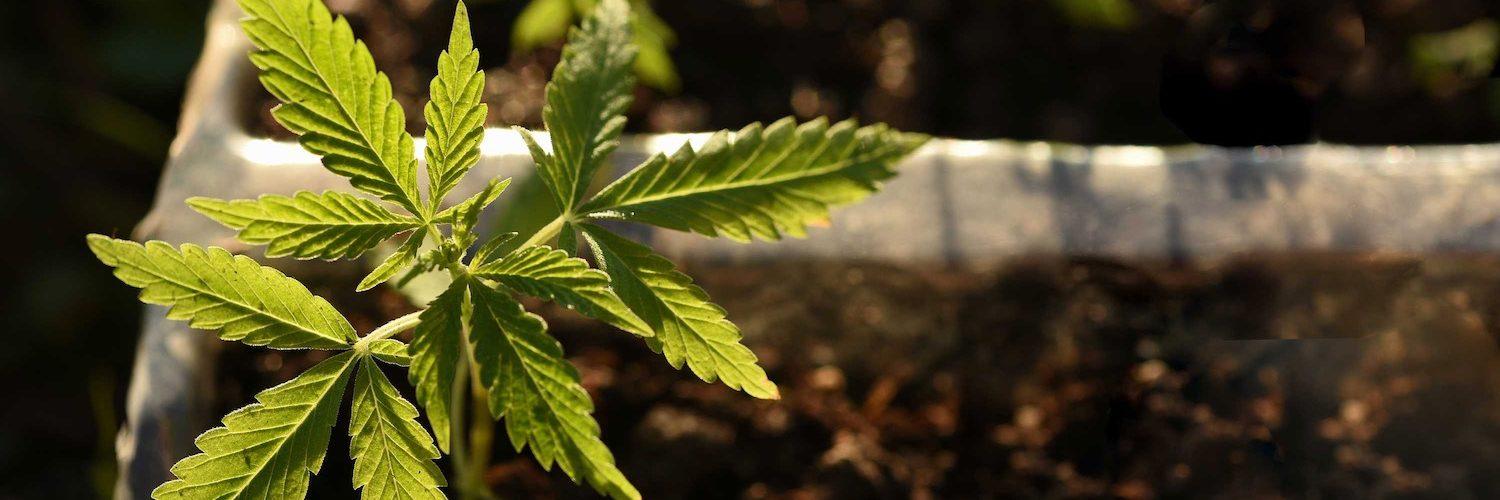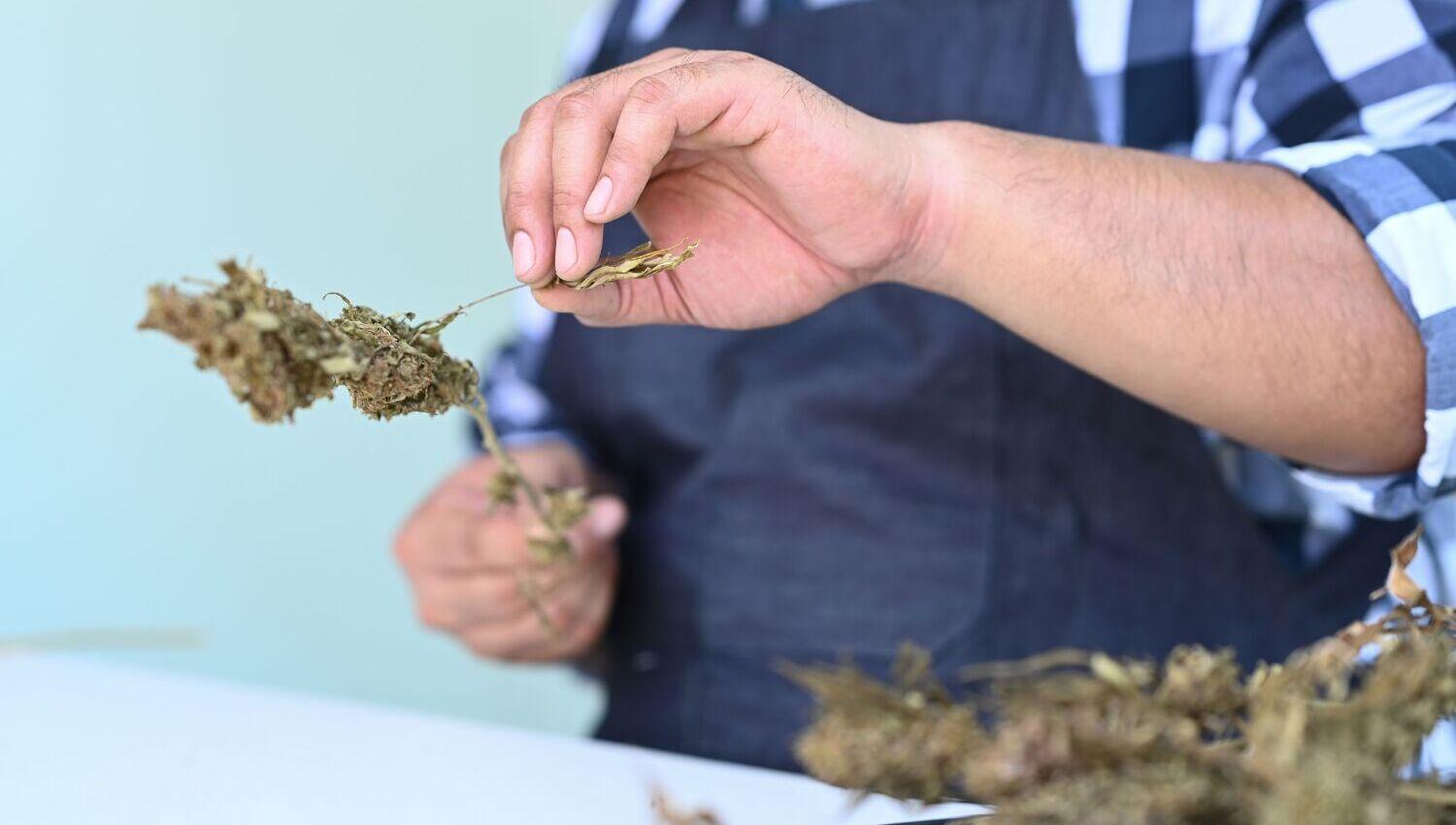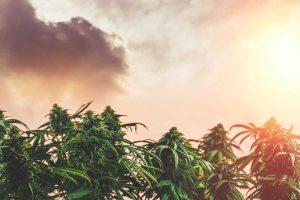- John DiBella
- Published: December 3, 2021
- Fact-checked by Dr. Desiree Granados

Through the years, cannabis has been believed to have health benefits, making it popular. Moreover, it claims to have a calming and relaxing effect when consumed. In fact, in some states of America, the cannabis plant is believed to be prescribed to treat various medical conditions, including anxiety, chronic pain, and seizure.
However, given its psychoactive properties, cannabis is illegal in several places, although research studies support cannabis’s cannabidiol (CBD) properties and health benefits. But it’s essential to know that the rules and regulations surrounding cannabis differ from one place to another. Some states allow the use of cannabis containing CBD properties for medicinal purposes.
So, if you’re curious about using cannabis for your medical condition, then you should familiarize yourself with the process of producing and drying it. Keep reading this article to learn how to dry cannabis.
Harvesting Cannabis
The process of harvesting cannabis is pretty straightforward. You will want to cut the plant down close to the soil and remove the buds from the stem. Some people like to hang the buds upside down to dry, but this can lead to mold growth. A better option is to lay the buds out on a screen or tray. Make sure they are in a well-ventilated area and do not let them touch each other. Drying your cannabis properly is an important step in harvesting good quality cannabis.
Why Dry Cannabis?
Cannabis should be dried because it improves the flavor, makes it more potent, and makes it easier to smoke or vaporize. If cannabis is not dried properly, it can taste earthy or grass and may be less potent.
Drying cannabis is a simple process that can be done at home. Start by removing the stems and leaves from the buds. Break the buds into smaller pieces and spread them out on a clean surface. Allow the buds to dry for 2-3 days, or until they are crisp. Once they are dried, store them in an airtight container.
Cannabis that has been dried properly will have a more potent flavor and will be easier to smoke or vaporize. It will also burn more evenly, which reduces the risk of carcinogens being produced. Dried cannabis is also less likely to cause respiratory problems, such as coughing and wheezing.
Drying Process of Cannabis
Now that you know the primary reason for drying cannabis, it’s time to get familiar with some tips and procedures. Generally, the drying process of cannabis can be essential to produce a high-quality product at a reasonable cost. But to do that, you may need to select the best drying solution for your production operation.
In case you have no idea where and how to start, check out some resource websites to obtain more information. When searching online, you can enter ‘How To Optimize The Cannabis Drying And Curing Process’ in the search engine’s search bar to know which drying strategies might work best in producing top-quality cannabis products and other relevant details.
But to educate yourself about the drying process, it’s best to consider certain factors. The main thing to keep in mind with drying is that humidity will speed up the process and lower temperatures will slow it down. The best place to dry your buds is a dark, well-ventilated closet somewhere between 60 ˚F – 70 ˚F.
You want to aim for about 50% humidity, but if you have a hygrometer (humidity meter) then feel free to get more specific than that. Wait until your buds are dry before packaging them and immediately refrigerating them for long term storage. A vacuum sealer works great for sealing up smaller quantities of herb and keeping out moisture/bacteria while still allowing the bud to “breathe.”

How Do You Know When Buds Are Dry?
It’s really quite simple. Just like when you pick up a stick of butter and you can tell how firm it is by applying slight pressure with your thumb, the same thing applies to cannabis! If you gently squeeze one of your buds in between two fingers, it should be dry if the bud crumbles apart into dust.
Sometimes, though, that test will yield false results because there may still be some moisture left inside of the stems. The best way to check for this is to break up an even smaller bit of bud than usual on top of a sheet of paper or plate so that none falls off the side. If the small piece isn’t completely crisp 20 minutes after being broken up, it’s still too wet to package.
If you’ve left your buds in a dark, draft free area for three or more days and they still feel wet you can use the microwave to dry them out further. Doing so will only take 5 minutes! Be sure to break up any large pieces into smaller nugs before putting them in the microwave.
There are two ways to do this:
- Put your damp bud onto an oven-safe plate or dish and pop it into the microwave on high for 2½ min then let sit another minute.
- Place several small piles of damp bud around an oven safe plate/dish, being careful not to over fill it as overfilling will cause hotspots that can scorch some of your buds.
Then, pop it into the microwave on high for about 5 minutes (microwaves vary). After microwaving, let the plate/dish sit for another 5-10 minutes to cool before checking the bud for crispness. If it’s still not as crispy as you like, give it another go in the microwave. Just be careful not to overdo it!
What Happens if Cannabis is Not Dried Properly
There is a possibility that the cannabis will be less potent, it may taste like hay or grass, and it might even be gritty. This can make it harder to smoke or vaporize and potentially cause respiratory problems such as coughing and wheezing. It’s important to store cannabis properly in order to preserve its potency.
No matter what method you choose, be sure to dry your cannabis slowly. A hot attic or a hairdryer can burn the herb and reduce its potency.
Research has found that drying cannabis at temperatures higher than 100 ˚F or with too much humidity might diminish the potency of cannabinoids such as THC and CBD. These methods may also make it difficult for people who use vaporizers to achieve desired effects from their medication because these devices operate best within a certain temperature range.
For example, if you’re using a vape pen that operates between 350°F – 450°F then you should aim for about 325°F during the final stage of drying in order to preserve as much medication as possible.
If you are not going to consume the cannabis within 2-3 days of harvesting then you will need to dry it. Drying cannabis is a simple process that can be done at home with a few household items. Start by removing the stems and leaves from the buds. Break the buds into smaller pieces and spread them out on a clean surface. Allow the buds to dry for 2-3 days, or until they are crisp. Once they are dried, store them in an airtight container.
Cannabis that has been dried properly will have a more potent flavor and will be easier to smoke or vaporize. It will also burn more evenly, which reduces the risk of carcinogens being produced. Dried cannabis is also less likely to cause respiratory problems, such as coughing and wheezing.
Conclusion
Drying cannabis is an important step in the process of making it ready for consumption. Not only does it lessen the chance of consumers getting sick, but it can also enhance the effects of cannabinoids such as THC and CBD. The best way to dry cannabis is slowly – do not use high temperatures or humidity to speed up the process.
Cannabis should be dried until its buds are crisp. Properly dried cannabis looks brown-ish instead of green, smells like fresh hay or grass, and is easy to break apart with your fingers. Finally, store your cannabis in an airtight container so that it doesn’t become too moist.
By following these steps, you can ensure that your buds will be flavorful, potent, and easy to smoke or vaporize. Thanks for reading!
How we reviewed this article:
- FDA and Cannabis: Research and Drug Approval Process
https://www.fda.gov/news-events/public-health-focus/fda-and-cannabis-research-and-drug-approval-process - How To Optimize The Cannabis Drying And Curing Process
https://pipphorticulture.com/cannabis-drying/
Current Version
December 3, 2021
Written By
John DiBella
Fact-checked By
Dr. Desiree Granados
Editorial Process
Our Editorial Process

John DiBella is the co-founder and CEO at The Sanctuary Wellness Institute. His goal is to foster healthier lifestyles to improve individuals’ quality of life and health span through online medical and non-medical services. When he’s not writing health & wellness articles for The Sanctuary, he enjoys hiking, camping, surfing and sailing.







